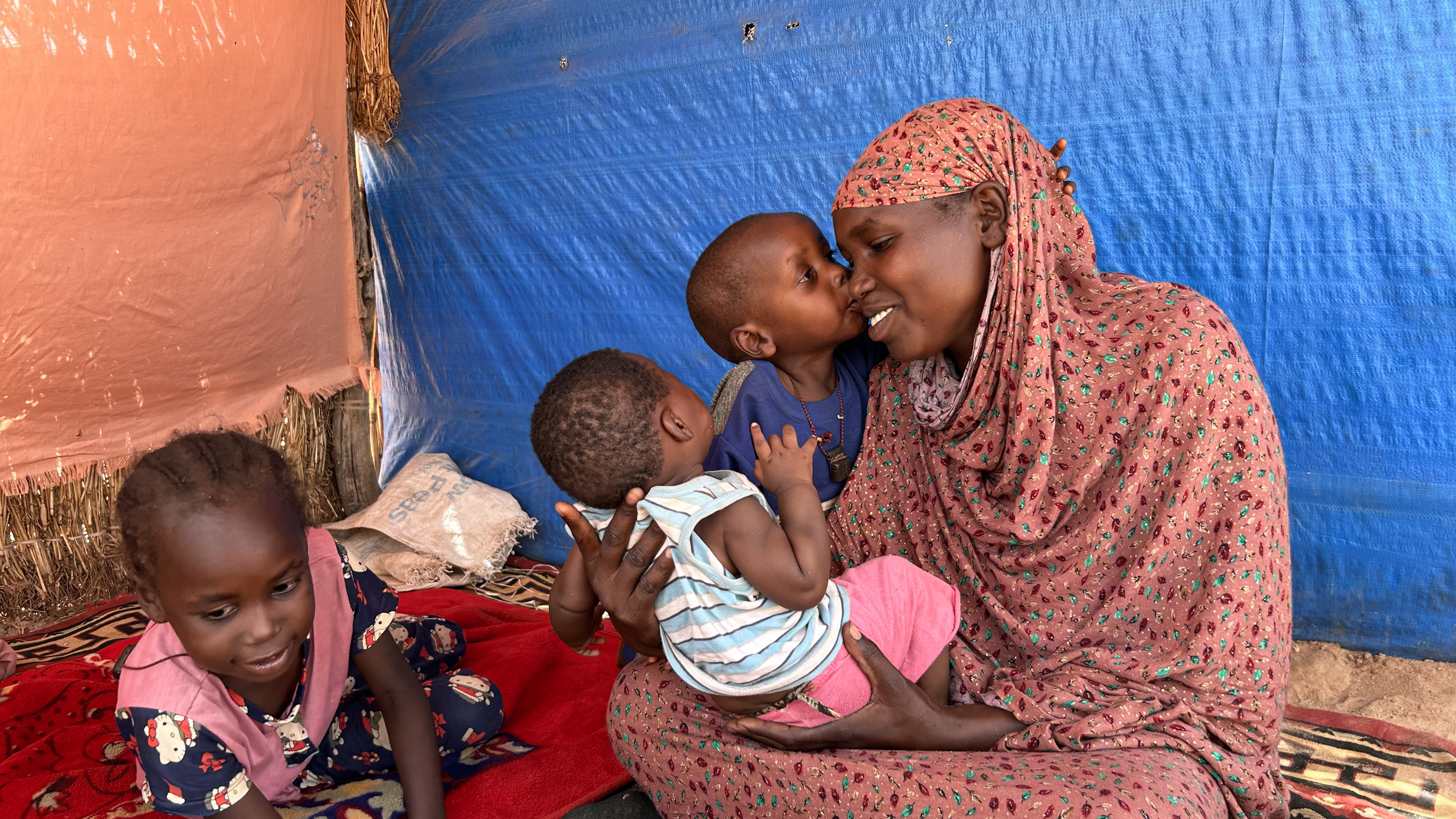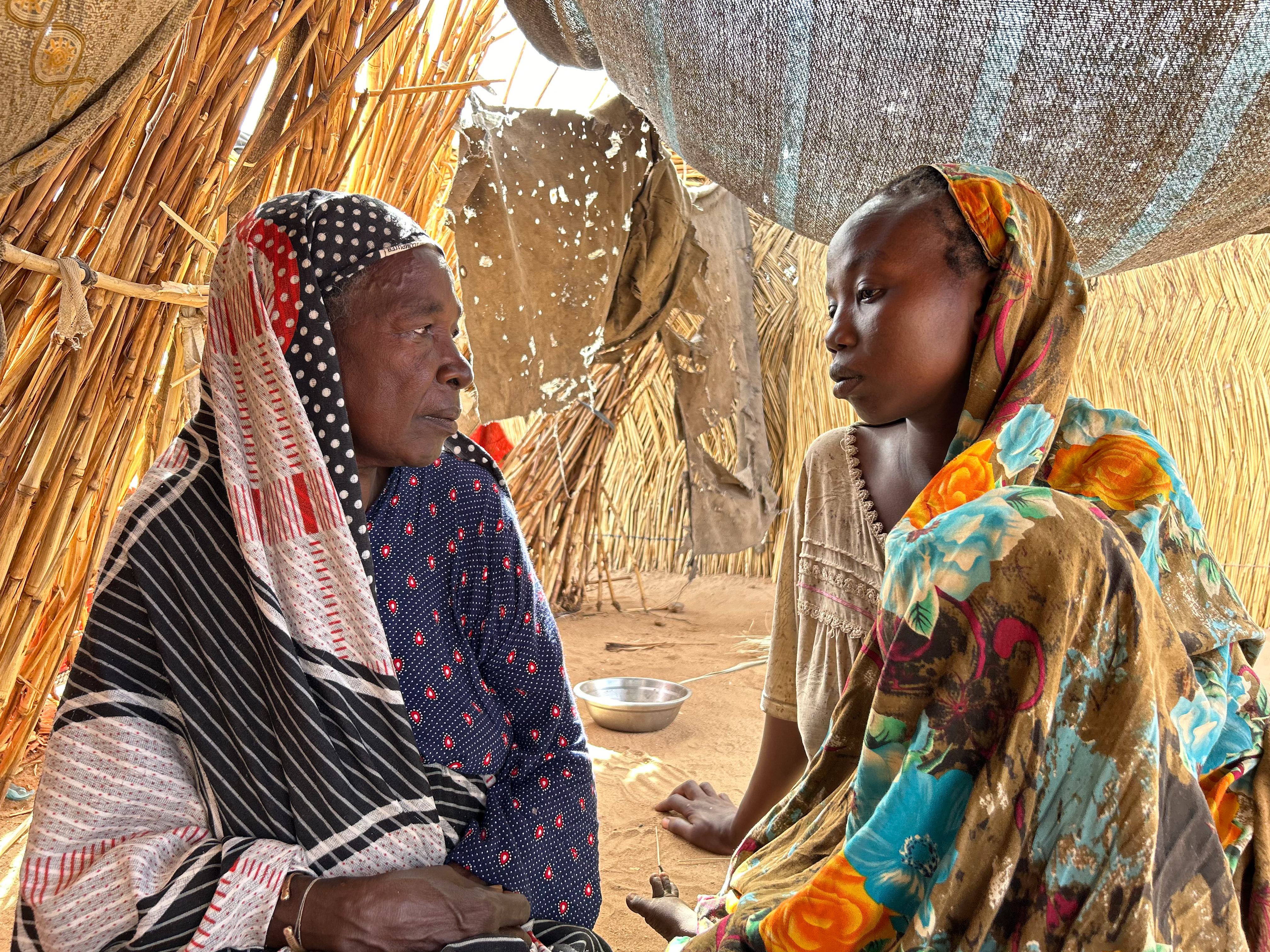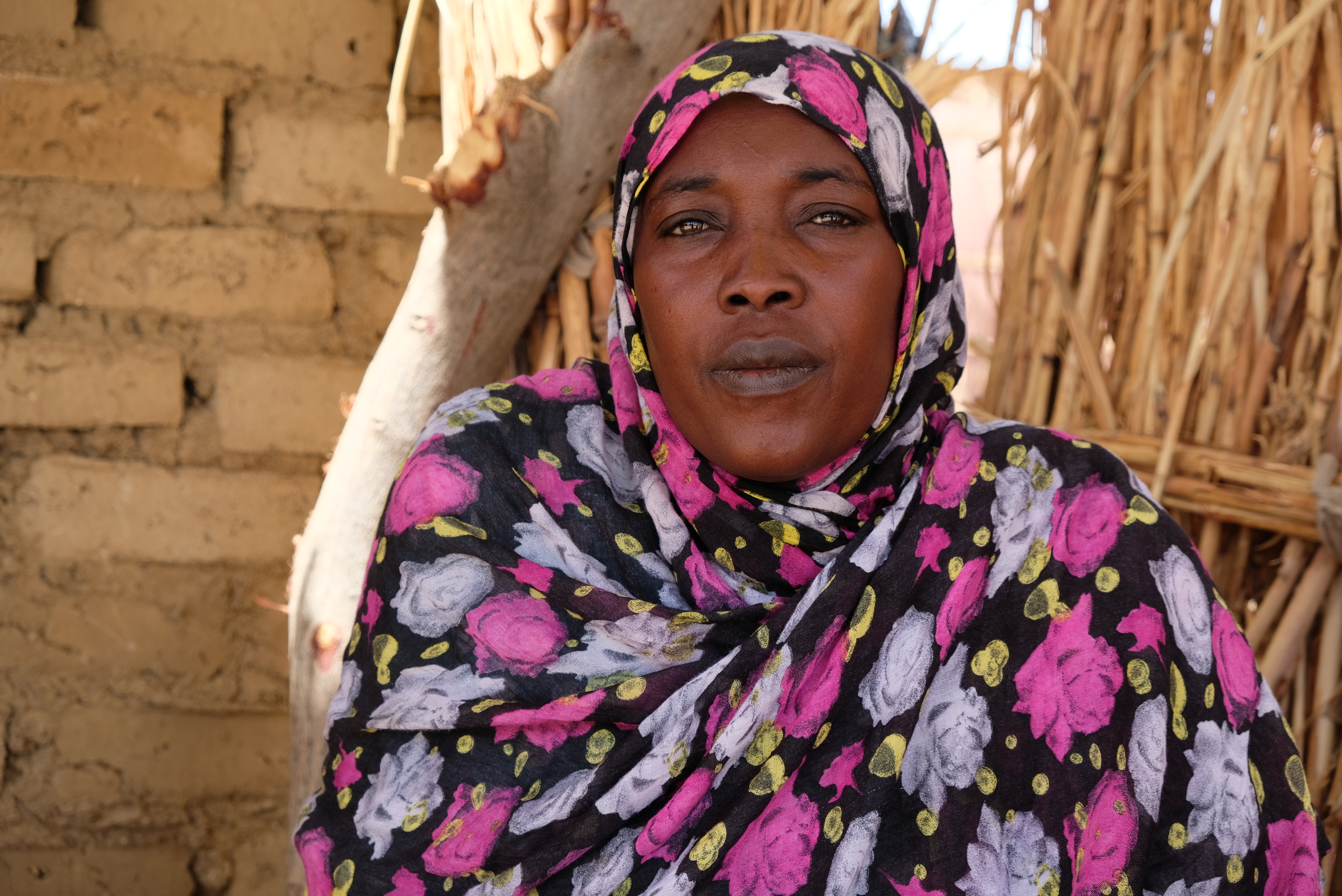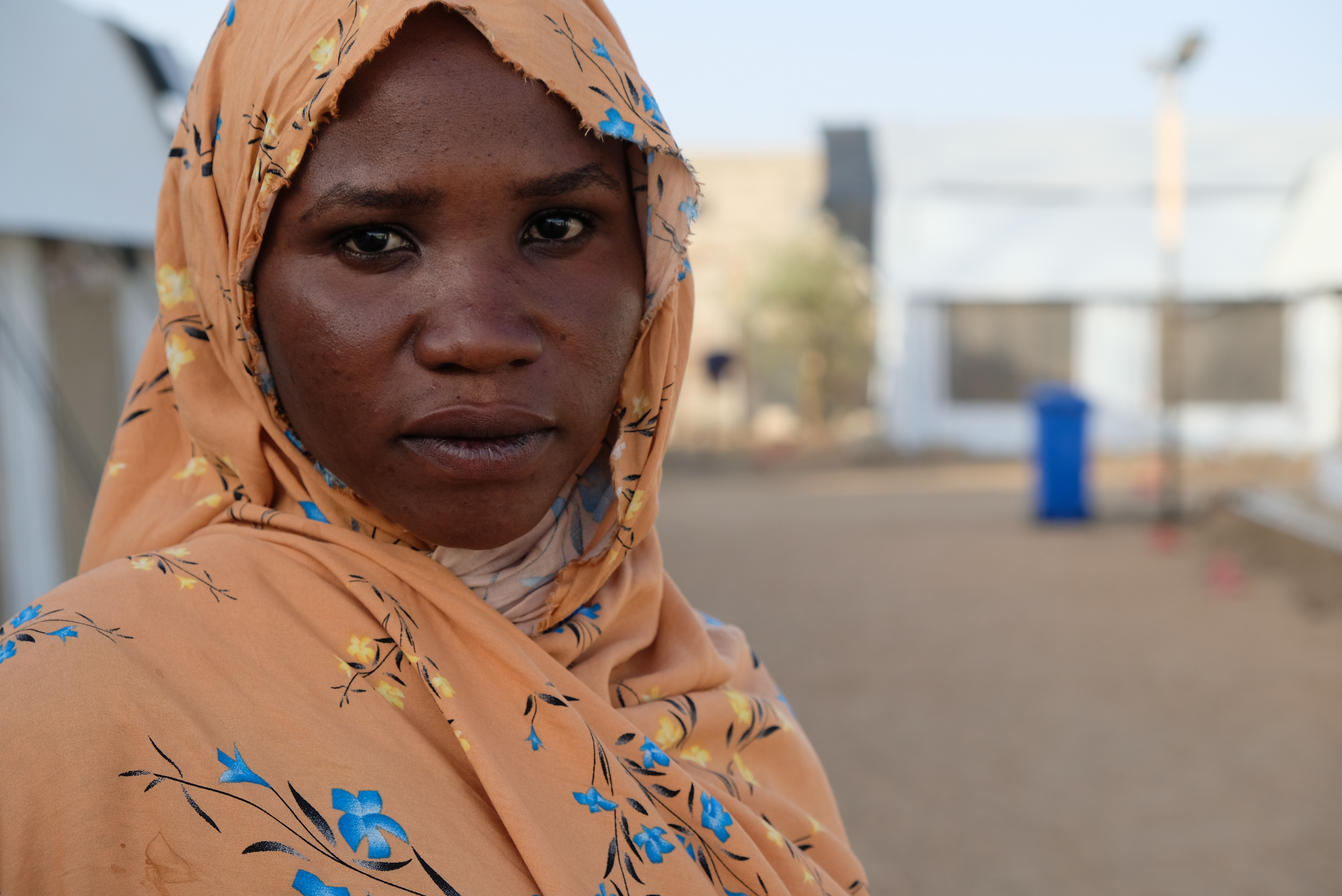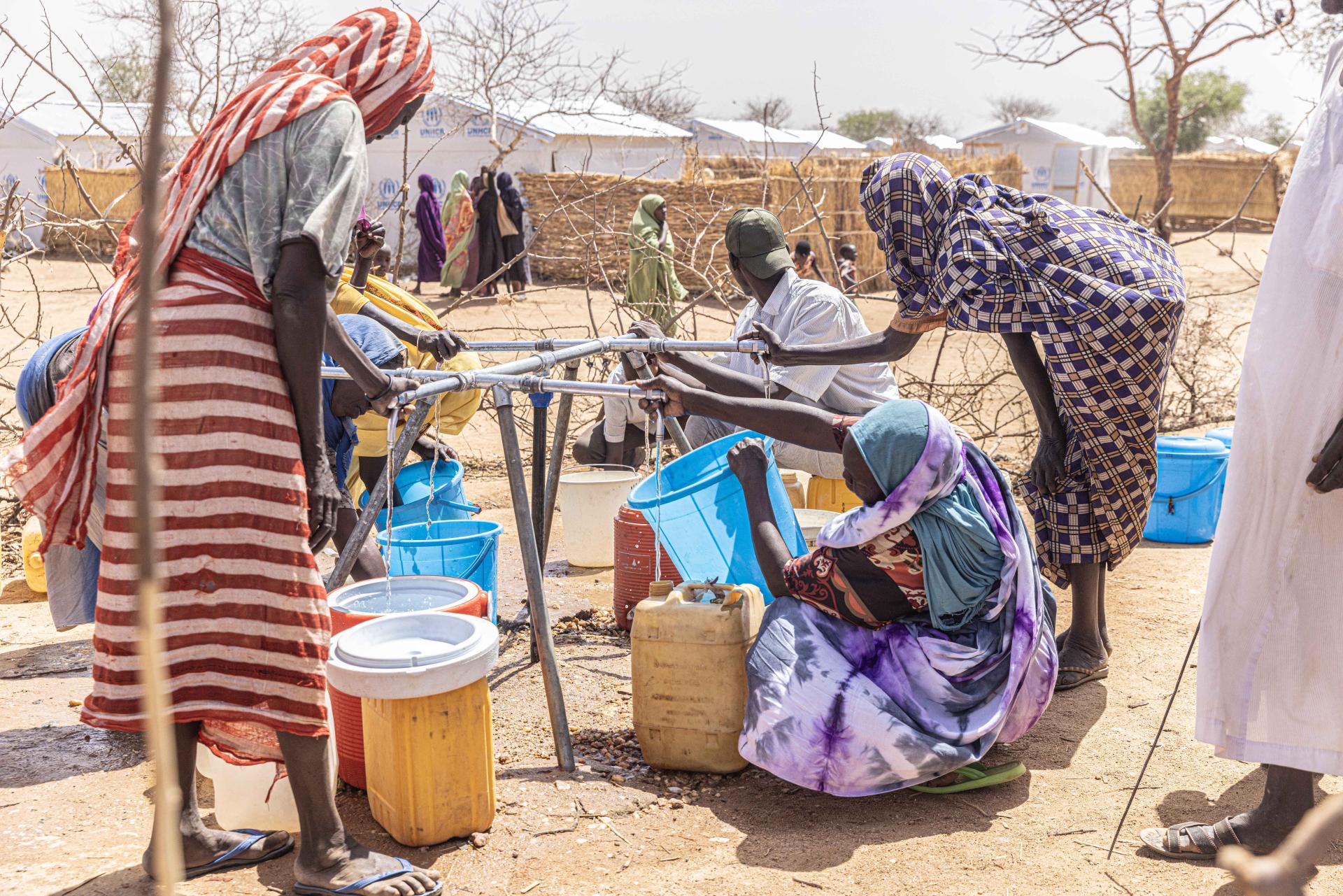“I think that if I hadn’t lied about being Masalit, we would have died that day”
Taiba arrived in Aboutengue camp in July 2023, after fleeing the brutal Sudanese war with her husband Bashir and their two eldest children: Aya (6 years) and Ayoub (2 years). Their youngest, Ayat, was born four months ago in the MSF emergency hospital that was set up in Aboutengue to bring healthcare closer to the population in need.
“That day [16 June], I was at home with our two kids and my husband was out nearby. Numerous armed men attacked and looted the area. They took our car and entered our house. They threatened me with a gun to my neck and asked, “what tribe are you?”. We are from the Masalit tribe, but to save our lives, I denied the truth and replied, “I’m from Borgo, I’m not Masalit.” They forced me to speak in the Borgo language to make sure I was telling the truth. Fortunately, I managed to speak a few words and they let me go. Some of my neighbours are from the Borgo tribe so over the years I’ve learned some words from them, just in case. I think that if I hadn’t lied about being Masalit, we would have died that day.”
“I’d heard from neighbours that in previous attacks the armed men had ordered boys out of the house and killed them, solely based on their gender. Some even check the trousers of little boys. So, we’d got in the habit of dressing our boys as girls. Ayoub was about a year old at that time, but I still dressed him as a girl, so he would not get hurt.”
“Before leaving our house, they took whatever they could steal and told me to leave, saying, ‘it is not safe for you to stay here because another team of armed men is coming, and they are more frustrated. You must leave now.’ I didn’t have much time so I took my kids and the few things I could carry with me, like kids’ clothes. But as we made the journey towards the border these were also stolen by armed men – they won’t allow us to cross the border with anything.”
“When I left the house, I saw a lot of people dead on the road. Some of the bodies were decomposing. It was horrible to see. Some of my neighbours had been killed. I fled with the other survivors. On the way, I managed to find my husband and we joined the crowd of people fleeing together. We got stopped twice on the way. People were killed. The first time’, armed men started shooting at the crowd. My husband got shot in his right foot – he could barely walk. The second time, armed men attacked us again. They kicked me, and they badly beat my husband with a stick. After this, he could barely move so I tried to carry him as much as I could with my young baby Ayoub in my arms. A woman kindly offered to take care of my daughter Aya as I strove to carry my husband and son.”
“On the last stop of our journey, I tried to find my daughter again, shouting her name among the crowd. At last, we found her, still with the woman who had looked after her. I felt so relieved. In the village, I also met the army who told me to leave my husband there and go to Adré to ask for help at the hospital. It us took us four days before managing to reach Adré. At the hospital, we were taken care of by the medical teams, supported by MSF, and had surgery and treatment. That was when we got the news that my husband’s left arm and leg were paralysed for life, because of the beating.”
“Our kids are traumatised by everything they saw on the way. When they hear gunshots or loud noises, even loud voices, they hide and cover their ears, crying. The eldest one keeps asking questions about what has happened, why we were not safe and what will happen now.”
“In El Geneina, before the war, our life was great. I was a midwife working at the hospital, and my husband was a businessman, trading cars. Once Sudan is safe, we will go back because life here is so difficult, we suffer without access to basics: food, water, school, work. We have no bed, no mattress, we lack many things. The only food we get is from humanitarian organisations. Sometimes people in the community support us and give us a bit of food. But there is nothing we can do here, there is no work, no lands, there is no way for us to save ourselves. I am the only one taking care of my family. My husband cannot move because of his paralysis so I must do everything, from carrying the water to finding food.”
Her husband broke down in tears while listening to his wife’s words.
